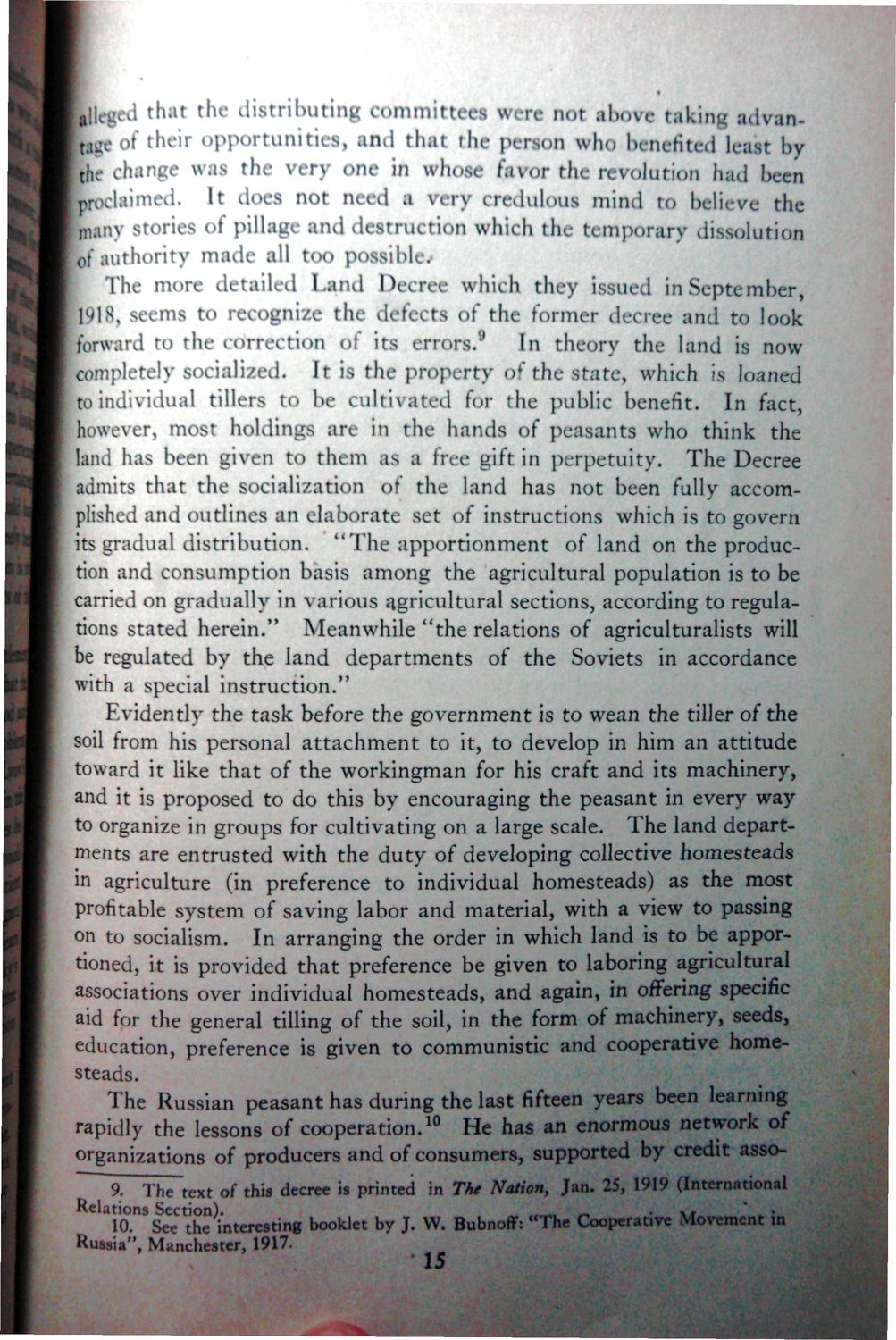| |
| |
Caption: War Publications - WWI Compilation 1923 - Article 22
This is a reduced-resolution page image for fast online browsing.

EXTRACTED TEXT FROM PAGE:
alleged that the distributing committees were not above taking advantage of their opportunities, and that the person who benefited least by the change was the very one in whose favor the revolution had been proclaimed. It does not need a very credulous mind to believe the many stories of pillage and destruction which the temporary dissolution of authority made all too possible/ The more detailed Land Decree which they issued in September, P18, seems to recognize the defects of the former decree and to look 9 forw. d to the correction of its errors. In theory the land is now completely socialized. It is the property of the state, which is loaned to individual tillers to be culri\ated for the public benefit. In fact, however, most holdings are in the hands of peasants who think the land has been given to them as a free gift in perpetuity. The Decree admits that the socialization of the land has not been fullv accomplished and outlines an elaborate set of instructions which is to govern its gradual distribution. " T h e apportionment of land on the production and consumption basis among the agricultural population is to be carried on gradually in various agricultural sections, according to regulations stated herein." Meanwhile "the relations of agriculturalists will be regulated by the land departments of the Soviets in accordance with a special instruction." Evidently the task before the government is to wean the tiller of the soil from his personal attachment to it, to develop in him an attitude toward it like that of the workingman for his craft and its machinery, and it is proposed to do this by encouraging the peasant in every way to organize in groups for cultivating on a large scale. The land departments are entrusted with the duty of developing collective homesteads in agriculture (in preference to individual homesteads) as the most profitable system of saving labor and material, with a view to passing on to socialism. In arranging the order in which land is to be apportioned, it is provided that preference be given to laboring agricultural associations over individual homesteads, and again, in offering specific aid for the general tilling of the soil, in the form of machinery, seeds, education, preference is given to communistic and cooperative homesteads. The Russian peasant has during the last fifteen years been learning 10 rapidly the lessons of cooperation. He has an enormous network of organizations of producers and of consumers, supported by credit asso9. The text of this decree is printed in The Nation, Jan. 25, 1919 (International i0. £ the mteresting booklet by J. W. Bubnoff: "The Cooperative Movement in Rutsia", Manchester, 1917. Ca nS Ct
| |